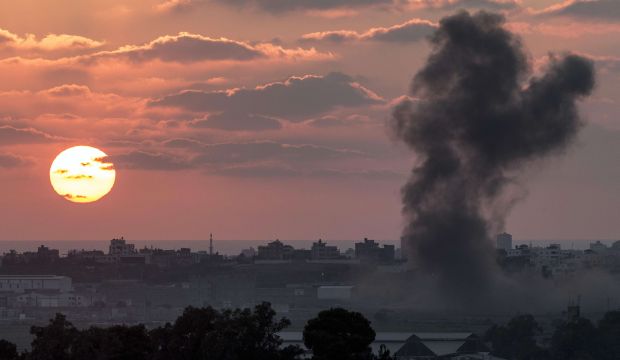The Middle East is the most magnificent cradle of human civilizations in the world. It is the land of the prophets, where the heart of history beats. It is a valuable and special place.
Some of the fine people of these lands have fallen under the influence of destructive traditions and passions, especially during the past century. The fragmentation of the region and the resulting conflicts have made some of its people aggressive and angry.
Oppressive, wretched and unwelcome developments have also manifested in the region, maybe more than anywhere else. Some burned themselves alive in protest, some wasted billions boycotting other countries, and eventually encouraging conflict rather than peace became fashionable. Instead of rational measures to silence aggression and conflict, bullying became the norm. Because of these unwelcome traditions, the Middle East has never known peace.
But the Middle East needs rational policies to provide solutions that can be accepted by all states, not a bullying spirit of attacking those one dislikes. These policies are necessary for every state, and every state must be evaluated separately. Here, I wish to carry out that assessment for Turkey.
Under the influence of its moderate and conciliatory policy, Turkey was, until 2010, the center of progress in developing East–West economic and social relations. There was talk of a Customs Union between Turkey, Syria, Lebanon, Jordan and Egypt, and there were even practical measures towards it in the pipeline. The leaders of Israel and Palestine shook hands under the roof of the Turkish Parliament. Turkey was the only country that could make Syria speak to Israel at the time. It was a brother to Egypt. It mediated between Syria and Saudi Arabia. Eyes turned to Turkey whenever conflict arose in the Middle East, because Turkey always took the lead in arranging negotiations.
After 2011, the region changed. Partisanship, conflicts and differences of opinion within countries emerged due to changing balances of power. Choices began to be made based on self-interest and emotion. This was true of Turkey, where emotions also prevailed. Evaluations were based on ethics, and realpolitik and self-interest were abandoned.
That was a positive development, but at the same time Turkey’s leaders should not have forgotten the conciliatory approach they had taken before. If you live in a place of polarization, you have to choose one of the two poles. If one side follows your ideals, the other will not. But even if you are partisan, you must adopt a policy that reconciles those poles. Just because you dislike the policy of one side does not mean you must embrace the Middle Eastern tradition of becoming angry with them. It is better to educate them with peaceful words and calm things down.
Turkey is a natural mediator, a ray of hope for many Muslim communities. It has been a pioneer in introducing the Middle East to the spirit of Islam and democracy. Turkey therefore has no option but to follow a peaceful and conciliatory policy. Of course, it will speak out against injustice and espouse what is right, but in doing so it must not upset any delicate balances. It must assume the role of an older brother who brings warring sides together when necessary. Conciliatory language is the only way to ensure peace.
The fact that the destructive effects of the Arab Spring on other countries affected Turkish foreign policy is not entirely Turkey’s fault. But when circumstances are delicate, policies and attitudes must reflect that. One must be able to protect the weak and point out an oppressor’s oppression, and perhaps even liberate them. But one must not forget that angry words towards a country or administration harm only the innocent. One must win that administration or country back, not marginalize them. One must display the sensitivity of an older brother.
It is not simply Syrian President Bashar Al-Assad or Iraqi Prime Minister Nuri Al-Maliki or others of their ilk who are to blame for the bleak state of things in the Middle East. The real fault lies with the Muslim community’s failure to unite around peaceable and conciliatory language. The people of the Middle East have chosen a spirit of conflict over peace and love.
Denouncing someone as a tyrant, constantly shouting out in anger and hatred and calling for “war and revenge” from the comfort of an air-conditioned room harms only the innocent and the wretched in the Middle East. I wonder how many people would shout about “war and revenge” if they were in the middle of the fighting? Do they not see that more children will die because of those endless cries? When will Muslim lands obey the command of Islam written in the Qur’an that says: “O you who believe, enter into complete peace !”
As Muslims, we must seek paths of peace. We must abandon the dark traditions of the Middle East and desist from demonizing one another. The solution lies in unity. Muslim lands, and Turkey in particular, must recognize their responsibilities. Peace requires patience. Those who demonstrate patience and use the language of peace will save the Middle East. Those who shut the doors in rage must remember that the responsibility for every dead child in the region will be theirs entirely.

A more calm and conciliatory approach to conflicts in the region would indeed be preferable to the polemics and denunciation that have so often occurred instead. The author is correct that any region of the world has its darker traditions of violence that must be overcome if lasting compromises and peace can be achieved.